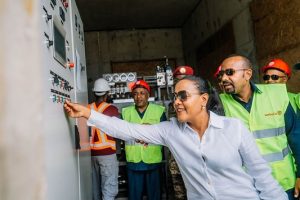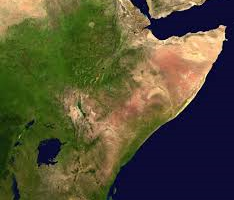
Back in 2015, heads of states and government representatives gathered in Ethiopia’s capital, Addis Ababa to discuss some global pressing issues and put in place sustainable solutions accordingly. The widely known Addis Ababa Actions Agenda was the result of the 2015 Third International Conference on Financing for Development.
The Addis Ababa Action Agenda aims to end poverty and hunger through achieving the United Nations’ Sustainable Development Goals (SDGs). The Agenda has been directed at promoting inclusive economic growth, social inclusion and protecting the environment.
It is stated, in various documents, that bringing the agenda to the ground needs strong political commitment to address the challenge of financing and creating an enabling environment at all levels for sustainable development in the spirit of global partnership and solidarity.
The heads of states and government representatives have also pledged to ensure the implementation of all human rights, the rights to development, gender equality including women’s and girls’ empowerment. Besides, the agenda aims to promote peaceful and inclusive societies and advance fully towards an equitable global economic system in which no country or person is left behind, enabling decent work and productive livelihoods for all, while preserving the planet for our children and future generations.
But the implementation has been sluggish. Even after around ten years, the execution of the ambitious action agenda has not shown much progress as it was expected. Many even suspect that its effectiveness is not that much possible. Some documents also state that the action agenda has not clearly addressed two prominent issues that featured during the 2015 conference. These issues were the formation of an intergovernmental body on tax which was strongly advocated by civil society organizations, and establishment of some form of international sovereign debt restructuring mechanism to address the debt sustainability challenges.
This was echoed during the first preparatory committee conference on the fourth Financing for Development Conference held in Addis Ababa recently. Ahmed Shide, Ethiopian Minister of Finance, while delivering his opening speech, stated that the implementation of the Addis Ababa Action Agenda of the United Nations’ (UN) Financing for Development is unsatisfactory and caused developing countries significant financing gaps.
“Despite some achievement, developing countries like Ethiopia continue to face significant financing gaps which affect hard-earned progress and are exacerbated by recent global crises such as the COVID-19 pandemic, political conflict and economic instabilities.”
As to the minister, the action agenda was believed to pave a way to a new era of global cooperation and ambitious financing development. To achieve the agenda, the need for a comprehensive holistic transformative approach to achieve the 2030 agenda for Sustainable Development Goals is paramount.
Ahmed also voiced that the escalating burden, particularly concerning with many countries which are allocating more resources to death in services rather than investing in basic social service, is undermining financing for development. There is a need to lay out bold actions ensuring the realization of sustainable development goals.
In addition, the minister noted, “We should critically examine the challenges and implement coordinated reductions to accelerate the implementation of sustainable development goals. We must advocate for comprehensive reform of the international financial architecture including improving global economic governance, enhancing data lab measures and reducing cost of sovereign borrowing.”
He also urged that explore and implement innovative finance in solutions to mobilize resources effectively. Mobilizing private investment and strengthening multi-development banks are also important steps. Innovating climate financing mechanisms, such as debt for climate swaps, carbon trading and green bondage should be promoted and extensively used, he mentioned.
He further noted that Ethiopia stands as a testament to resilience and determination striving to overcome challenges and forge a bright future for its people; adding, “We embark on an ambitious transformation aiming to lift millions out of poverty, enhance infrastructure, improve education and ensure healthcare for all.”
As to him, significant strides have been made in poverty reduction, education, health, sustainable energy, and gender equality. In response to agenda 2030, the government of Ethiopia is committed to combating climate change. It has made substantial achievements in restoring millions of hectares of degraded landscapes through initiatives such as the Green Legacy initiative which is a champion initiative by the Prime Minister.
By the same token, Amina Mohammed, United Nations Deputy Secretary General, on her part, said that most developing countries are facing high costs of capital. “Many of them cannot invest in the future as they struggle to meet their immediate needs, paying salaries and meeting debt service”.
Amina also criticized the financial system as the international financial flow is not based on developing countries’ economic outlook which entails that countries remain in bleak while the global economy has been described as in resilience.
There is, as to her, a soft landing in the north but not in the south. The south is a crash landing. She also stressed the inevitable reform of the financial architecture of the world saying the need for reform was evident in 2015. The series of shocks that have rocked the world since 2020 are a testament to the urgency of delivering on the Addis Ababa commitments, she underlined.
On the other part, Robert Powell, International Monetary Fund (IMF) Special Representative to the United Nations, is optimistic that the upcoming conference in Spain will bring some tangible results.
As to Powell, “The Fourth Finance for Development Conference in Spain next year is an excellent opportunity for the international community to take stock of progress with and lessons learned from countries’ efforts to achieve the SDGs, and for all voices to be heard, including civil society. We should discuss openly what has worked and what has been more challenging, so that we can further strengthen our efforts going forward.”
He affirmed that the IMF, as an institution, is constantly evolving. The institution, for example, recently focuses on promoting sustainable and inclusive growth while protecting the vulnerable, and the development of strategies regarding its engagement on social spending, better supporting fragile states, mainstream gender issues into our work, and supporting its members’ efforts to deal with the challenges of climate change.”
“The new Resilience and Sustainability Trust (RST) is intended to support low and vulnerable middle-income countries to address longer term challenges -including climate change and pandemic preparedness – enhancing sustainable growth and prospective balance of payments stability. Good progress on fundraising has been made with about $47bn in pledges received to date,” he concluded.
It was learnt that the first Preparatory committee conference which was held from July 22-26 here in Addis Ababa will be followed by the Fourth Finance for Development Conference in Spain next year.
BY DANIEL ALEMAYEHU
THE ETHIOPIAN HERALD SATURDAY 27 JULY 2024





